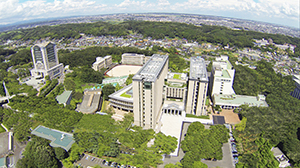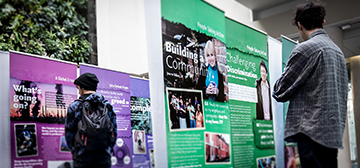- Future Students
- Current Students
- Faculty
- Staff
- Alumni
- Others
Exploring the Role of Music in Peacebuilding
Dr. Olivier Urbain, Director of the Min-On Music Research Institute in Tokyo, Japan, recently visited the University of Guelph-Humber to deliver a lecture on the role of music in peacebuilding. The lecture, titled “Musicking from Empathy to Global Justice: Sound and Proactive Peacebuilding” was the second in the annual Special Lecture Series through the Soka Education Research Centre on Global Citizenship (SERC-GC) – directed by Dr. Paul Sherman, Program Head of Family and Community Social Services at UofGH.
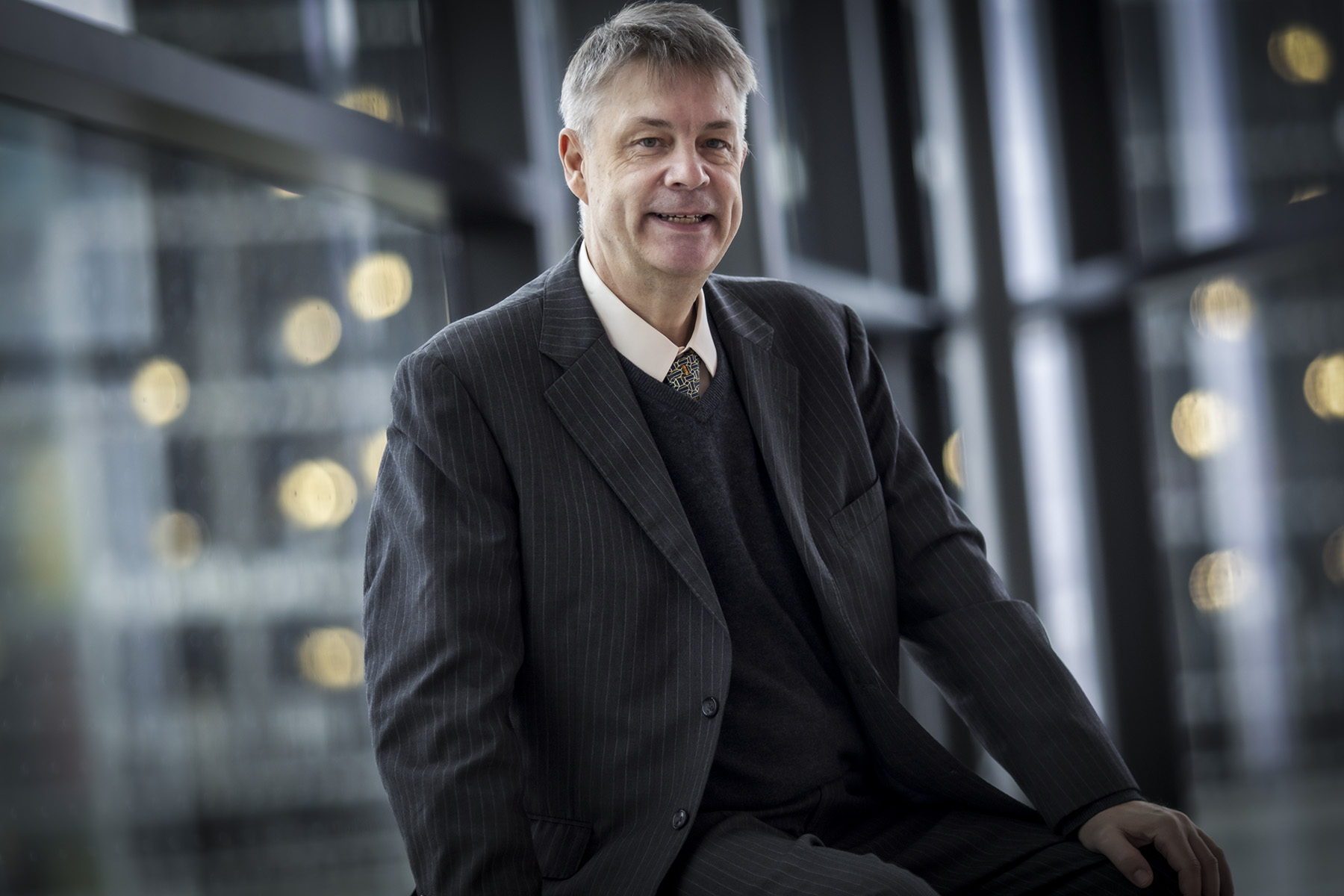
Bringing together two passions
Born and raised in Belgium, Dr. Urbain developed an interest in music at age 10, when a second-hand piano appeared in his home. He immediately noticed how music had the ability to positively affect an environment. “For the few days after the piano arrived, the atmosphere really changed at home, and I could immediately feel the impact of music, musicality, and musical instruments,” says Dr. Urbain. From there, he took piano lessons after school. “There was a great sense of freedom, being able to express yourself, connecting to people. After you play, you have a sense of calm and self-confidence, so that’s something you never forget when you have a taste of it.”
After completing a PhD in Literature at the University of Southern California, Dr. Urbain moved to Japan in 1991 and started teaching at Soka (or value-creating) University. In 1996, he attended a guest lecture there by Johan Galtung – the founder of peace studies – and was so interested in the field that he studied privately under him for 10 years. “I was very fortunate to learn the basics of peace studies from the founder of peace studies,” says Dr. Urbain. His studies under Galtung led him to complete a second PhD in Peace Studies.
“I had these two powerful experiences – seeing both the impact of music in one’s life, and the possibility for human beings to make peacebuilding a science, not just a side effect,” says Dr. Urbain.
He then brought these two experiences together by creating the first Art and Peace course for Galtung’s online university. Dr. Urbain also went on to edit and publish the first academic book on music and peace studies titled Music and Conflict Transformation – which discusses the links between music and peacebuilding, and has been a core text for others studying the topic. “You can’t be the best forever, but you can be the first forever,” jokes Dr. Urbain.
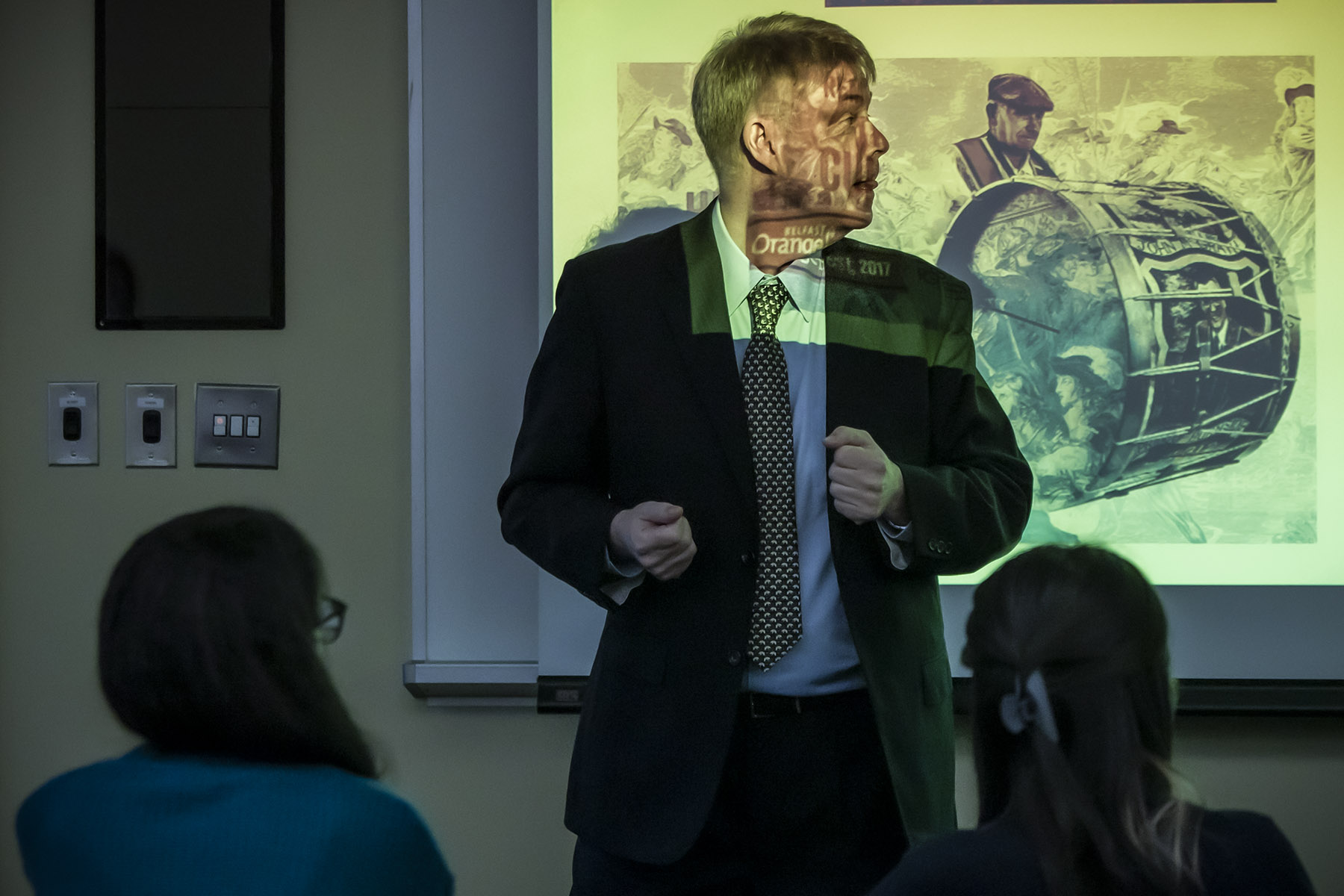
Music and peacebuilding
Dr. Urbain emphasized three main concepts in the special lecture: 1) Ambivalence: music, in and of itself, is not directly linked to peacemaking. “Music can be for anything, it’s completely neutral,” explains Dr. Urbain. “Music can be used for good, like music therapy, and it can also be used for evil and destructive purposes.” 2) Musicking: focusing on the actions people take with music. “This is looking at what people do with the music – “musicking” means someone listening at a concert is as important as the big star, because without the public there’s nothing. And it’s a lot of work to listen to and process the music.” 3) Amplifier: adding music to an activity makes it more powerful. “Music itself can’t do anything significant. However, if you add music to something, it can be very powerful,” he explains. “People use music in demonstrations. You cannot change laws or change a country with music, and you don’t need music in demonstrations. But you can add music to make it much more powerful. It has no power itself, but it can have a tremendous amplifying effect.”
Dr. Urbain also lectured to two UofGH classes during his visit to UofGH. During a lecture to the Global Citizenship class, Dr. Urbain asked students to reflect on their role in the world. "Dr. Urbain's lecture has empowered me to further reflect on the question of what is my role in life, and to feel comfortable discussing it with others,” says second year Justice Studies student Cindy Solano. “The fact that Dr. Urbain has discovered his own role as an expert in music [in peacebuilding], as he shared with our class, is very empowering."
Second-year Business student Nishanth Puvanendran added: “Dr. Urbain was amazing. I truly enjoyed his lecture and how inclusive he made it feel. I liked the end where he asked about our role in life, as it made me reflect on something that I truly have not thought of before. His lecture made me want to understand more about the Soka education system. It was honestly a great lecture and I am grateful for the opportunity to have met Dr. Urbain.”
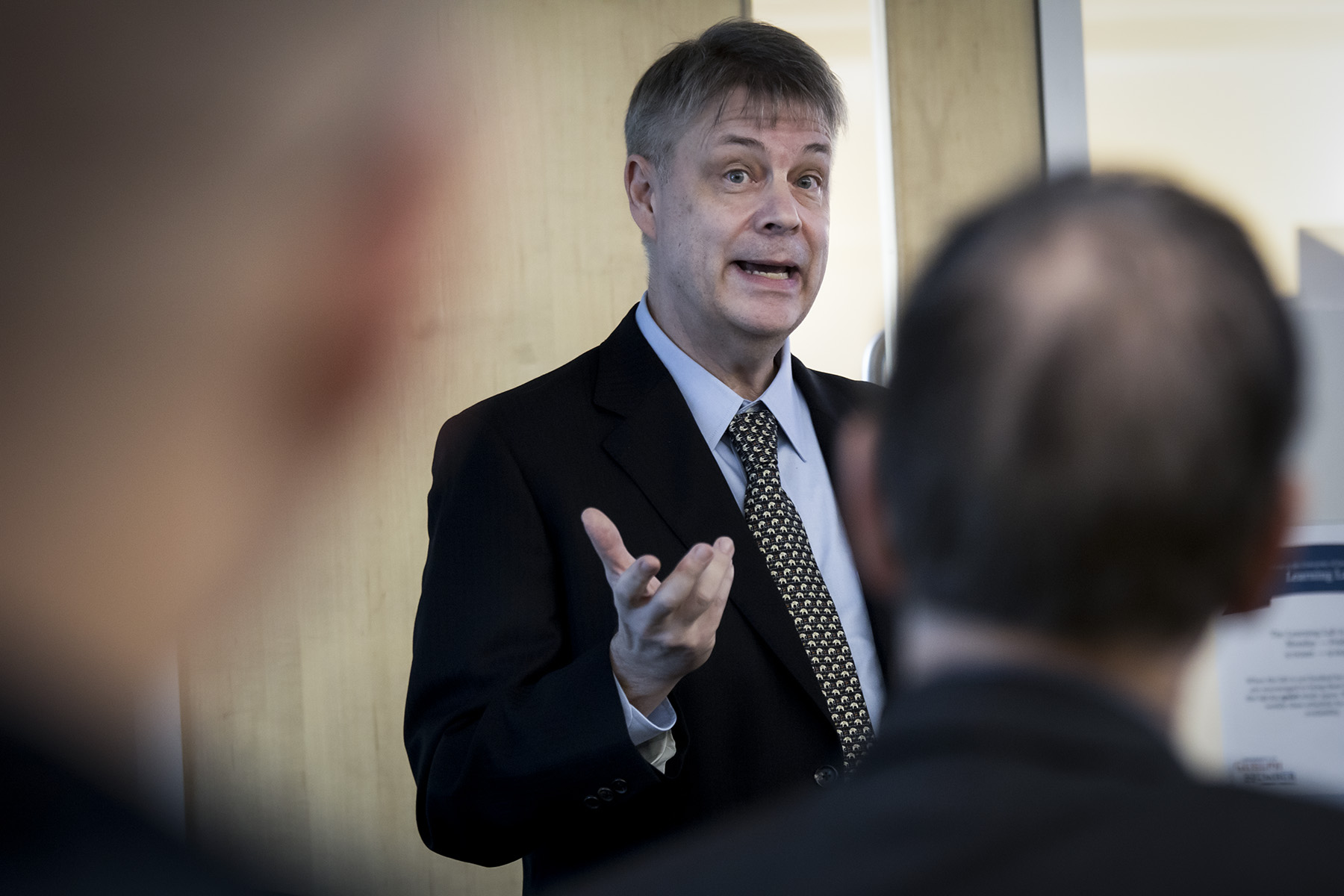
Dr. Urbain says he was impressed with UofGH’s lively atmosphere, and its unique approach to education. “The idea of mixing academia with practical experience, and designing the setup of a university like this is brilliant, and I can see students walking around with a sense of purpose, as if fulfilling a mission,” he says.
Dr. Sherman says visiting professors like Dr. Urbain bring a unique perspective to students. “Inviting international visiting professors to lecture at UofGH is a great way for our students to gain valuable perspectives and insights from experts in their fields, that can enhance the learning offered through the students' coursework,” he says. “Dr. Urbain's research into the application of music in peacebuilding activities offered students and faculty a unique understanding of how we can use dialogue, music, and the arts to create a more harmonious and peaceful world.”





